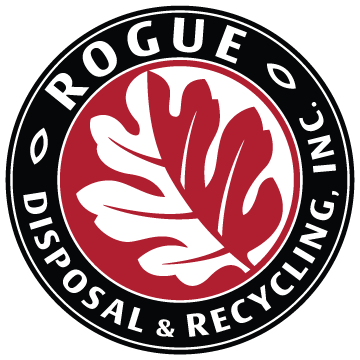Environment
Being compostable doesn’t always mean better for the environment: The trouble with “compostable” packaging and serviceware
The leaves, grass clippings and yard debris Rogue Disposal & Recycling collects during the year all become a nutritious — and natural — part of Rogue Compost. The quality of our nutrient-rich composts help create healthier and more resilient soil for use in everything from lawns, flower beds and landscaping to orchards, gardens, vineyards and more.
Read More10 easy ways to cut back on common household disposable items
With recycling markets in flux and the rules for what can and can’t be recycled changing, it’s easy to get discouraged about the amount of stuff you now need to throw away. The good news is that you can choose not to use some of that stuff in the first place — opting instead for reusable items and cutting down on the overall number of everyday items you need to dispose of.
Read MoreWasted food equals wasted money
Here’s some food for thought: Every year, an estimated 25 to 40 percent of all food produced or imported for consumption in the United States is never eaten. That’s as much as 63 million tons of wasted food. Of that amount, 40% is estimated to come from restaurants, grocery stores and commercial food service providers. And all that wasted food means wasted money — by some estimates as much as $57 billion annually for U.S. businesses.
Read MoreDigging in to make your own compost
Simply put, compost is decomposed organic matter that can be used as a fertilizer for plants. Composting is the natural process of recycling organic material — such as dark, crumbly soil-like material that can be used as a mulch, top dressing or soil amendment.
Read MoreLess packaging means less waste
Did you know that more than 17% of the waste stream in Oregon is made up of packaging materials. It’s true. Things like cardboard boxes, plastics, metal and glass containers, paperboard (cereal boxes, tissue boxes, shoes boxes) are designed to protect products and provide information for the user. Trouble is, once you take the shoes out of the box and the cereal is all gone, the packaging gets thrown away. There are some easy ways you can reduce waste and improve your packaging footprint.
Read MoreWhen it comes to your clothing, make every thread count
Creative ways to recycle and address waste management have never been more in fashion — starting with the clothes in your closet. A new movement called “Make Every Thread Count” asks you to think about the clothes you buy. Why? Because consumers today are buying more clothes and wearing them less. In fact, the average consumer now buys 60% more clothing items a year and keeps them for half as long as they did just 15 years ago. That adds up to a lot of waste.
Read MoreBreathing easy: Things you can do to reduce air pollution
Rogue Waste is committed to air quality improvements here in the Rogue Valley. One of the ways we do that is by converting the trucks in our fleet to run on clean-burning Compressed Natural Gas (CNG) — and opening one of just a handful of CNG fuel stations in the state. And plans are underway to refine biogas at the Dry Creek Landfill into an even cleaner — and renewable — transportation fuel known as Renewable Natural Gas (RNG).
Read More